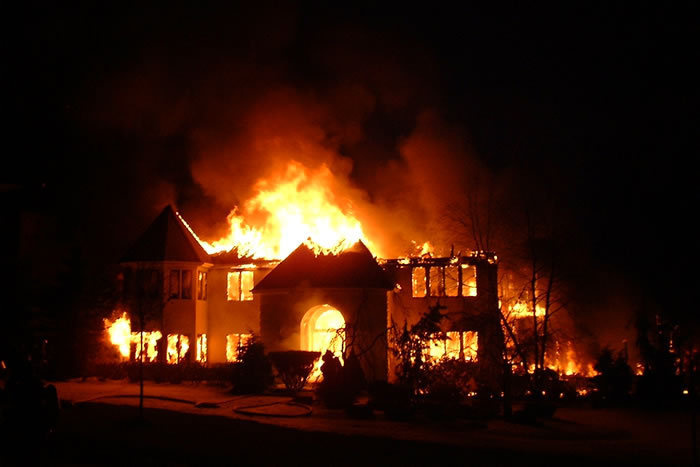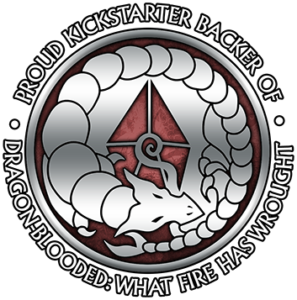Phoebus
You eke a stuttering return out of a broken nightmare forest. As you were not fit for Shambhala, as your presence was not condign to to the mitigations of Heaven, you too were pushed down and away from the Redemption of the one who suffered beneath the Eyes.
The path back is a bridge between pain and difference.
Light separates.
It illuminates powers and people and what keeps them apart.
The darkness draws in all things: faces and forms, the past and the present combining….
Waking comes unwelcome. Blood in the mouth, ache deeper than the flesh, scratch of straw. The spirit enervated by too many long days. Waking is not reward, waking is reaching the top of the hill of broken glass only to realize you also need to descend.
But nothing stays the same, nothing that lives. Even this experience is challenged.
Warm is the defining characteristic of the place. Palettes against tight walls under small shutters. A rusted stove spewing heat like a fever dream of reigniting the sun. Coffee steams in an old pan like the breath of Quan Yin who heals all wounds.
Phoebus sees you put your bodies back on not entirely happily. He is in a different state: stripped to the waist, his skin caked with lines of bitter yellow mud that Windrider salved on to cover the weals and weeping self-inflictions. In spite of that, he moves easy, setting out mugs of coffee and pea/oat gruel too young to be good, but warm enough to bring life to the self.
The man you saved offers to shave Father Massey with the bowl and blade he had clearly used to empty his own face and reduce his hair to an iron fuzz across purpled scars of a worried scalp. His eyes have a luminosity, a sort of infinite grey that catches the small light of the room and clings to it as if starved.
For some amount of time, Phoebus is the only human being in the room.
A handful of times, he stops, looking at the two of you with self-knowledge in his face. He makes a quiet, and disturbingly familiar drawl – just “Thank you.” He feels what he has been saved from. Even with the peace steaming off him, even with your dislocation from yourselves, it is clear that something was wrong with Phoebus Evans, and there is a reason he doesn’t come calling to town.
He nods to himself once you have words and motion and have done for yourself what needs doing – the bandaging of a hand, a shave, a wash, exchanging overalls for a ruined suit.
He sees you want to understand what happened. You see that he knows the story, but does not himself understand even though he knows all the parts. As if it were something expected, like a form of ‘hello’, he rubs the canyon of scar in his scalp.
He begins there, “I was a youngin, and didn’t listen to my daddy when I shoulda. I wanted to ride and it were winter and cold and I weren’t supposed to go insa barn,” he smiles a child’s regretful smile, which brightens into light, “Her name was Mazey – least that’s what I called her, on account of she was most the color of savage corn, so dark she was. I loved her.”
Proudly, and less self-conscious, he races on, “I saddled her. I did it right,” and the details unfold, “I cinched. She tried a couple horsey thing, but I cottoned em, and we both laughed. We went out, the sky was high and grey and the world was white and beautiful. Her steps were a high-born lady’s. Her run was…godly.” He looks away into the past with lustrous intensity, the opposite of the cold burning eyes that had almost found them in his woods.
“Of course when I got back, daddy had to punish me. Can’t be taking out them horses in the winter, not at my age, and one of the stallions kicked up a fit he couldn’t follow Mazey,” a squirm of discomfort, a pause. He licks his lips.
“Daddy really got the point across. Then there was a little … accident,” and they heard the boy’s screams across the years, and something breaking, and men yelling. “I was sick after, and had lots of bad dreams, and only Mazey would find me in ’em, and bring me back.”
He catches himself worrying at his head and drops his hand like a man who’d been hit many times for doing just that. He nods, as if he has found the right thing, “The summer next, I got back to work. I growed fast. I stopped readin’ with Will, and took up with the negro groomsman, a man we call Jacob.”
You know that Jacob was hanged back at the stables, that you cut him down.
Phoebus rambles about horses. Most of them are dead and gone now… their proud descendants, or those ones’ proud descendants would be the ones whose empty stalls you saw in the barn.
The Savages came. First to trade, then to help with the animals, to oversee some of the sheep, to offer new ways to work with the pigs. To give medicine and tobacco. They didn’t come back one year. The year after, Phoebus made new friends. Windrider would call them No Medicine Dakota, his Lost People.
Things had gotten different then. Daddy fell ill. The Na-ko-tah, as they sometimes called themselves, well they gave him every secret remedy to help – after that white doctor kept coming up empty-handed. Phoebus gave his daddy every cure, said every little prayer. But he died.
There was no self-knowledge in Phoebus’ eyes that he killed his father with poisons and perhaps with curses. You didn’t say anything.
There was an older negro who worked with the widow, Mrs. Evans in the house. He went by some crazy foreign name, but they called him Dolls, because he saved the orchard out back, and he loved to make little carvings out of the apples, and out of the sweet ripe corn leaves and give them as gifts.
In Phoebus words, in his mind, you see the shine on the ‘house negro’: a strange shine of his own country across the sea. You tease out that Dolls couldn’t see the wickedness that came, but he felt it, and he did what he could. But what effication has green corn against What Withers the Stalks?
There was a senior field hand with big dreams that Phoebus loved to hear spin his tales at night about the stars and the world outside Wyoming, and how he was going to go and meet Queen Kalipha who he’d read about in Spanish, and marry her, and become King of California. He was called Mouth. He had big dreams, this negro, and the Savages were going to help him achieve it. He was a small man, not strong, but quick, and with a big head to hold all those dreams.
You know you have stopped this man’s mouth, that you ended whatever options there would have been for him to marry an imaginary queen. You know he learned too much about no medicine, and about the failing of the West.
Phoebus tells you how there was a new mining opportunity. Not for him, but for the hands. There’s a strange shine in Phoebus’ eyes like the fever for gold and the fear of it all the same. There was gold. Well, not gold, but something better than gold down in the ground out there. The men started going. They brought back little things. There was a bunch of little trinkets buried in the ground. They burned ’em mostly, and whooped it up. The men had their wild times. The men got sick. The men didn’t have the medicines his daddy had. The men died.
They got more men. The men on the farm had some arguments. Some of them had to get ended once and for all. The Widow Mrs. Evans had to stay in her room on account of hysteria. Things got a little better. The apple trees died. Things got worse.
There weren’t much to do on account of the animals all going to the mines. Or dying. Or needing to be et cuz the crops all died in the field.
Oh, did Phoebus pray, and that’s when the angel came more clear to him, told him how he could make things better. How he’d been bad, how he needed to be punished, since his Daddy weren’t around no more. He took it up. Things changed. They were gonna be rich soon, he’d see to it. He needed to write in himself all his fever hopes.
This part was not without self knowledge. Phoebus looks at you and there is shame in him. He doesn’t articulate it, but he knows he was tricked.
Widow Mrs. Evans left, but came back with a couple of the hands who worked for Mouth. She decided to spend some time reorganizing the larder. Real intent-like, with no interruptions. Phoebus started sleeping outside.
When Will came, he was in a bad way. He got told the negroes killed everybody and ran off to the mine. He went after them. Phoebus didn’t reckon he had a gun.
Phoebus doesn’t know what to make of the gunslinger that came this week. There was a big disagreement.
Phoebus moved into the grain shack, and Mouth talked and talked and talked and it hurt too much to listen, so Phoebus went and hid in the forest he’d found with Mazey, but the forest wasn’t doing so good and Mazey was gone, and all he had to do was pray the way the angel told him, but that hurt too….
Phoebus moves easily. Phoebus refills coffee mugs. He gets wood from outside and stokes the belly of the stove. Windrider is outside where the morning light touches him, and the frost is creeping down the mountains like hunting cats.
Phoebus hands him some gruel, and the Lakota shakes his head, but Phoebus just puts it on his leg, because food ain’t just for eatin’.
Phoebus comes back in, washes things, offers to mend some clothes. Apologizes there ain’t no eggs, as the chickens and their eggs had gone a while back. Eggs first, if that mattered.
Phoebus was at the end of his storytelling, and leaves you absorbing it, strength coming back into you from morning, or Windrider’s face that looked hard enough to chop ice, or the dead crops, or the smell of kerosene. Phoebus sits down, smiling a little happiness, not really knowing what he’s done this morning, but knowing he’s done something. He is a little proud.
Phoebus’ quiet manner and kindness that had nothing to do with the blessing almost gone from him made one thing clear: Pale Rachis knew exactly who it was choosing as the lynchpin of the Evans’ undoing. Wickedness, like infection, wants for its workshop that which will be most painful when fouled.
Things You Know’d Now What You Ain’t Afore
Pale Rachis
Is the spirit that ~~Cole~~Coal Browning spoke of
The spirit has these aspects:
Spirit Related to Nature (corrupted Corn Woman?)
Every Paling Needs an Anchor Whose Failing is a Suffering
Walks in the Deep Shadow *
- New Learning: there are layers and layers of the world and some things naturally abide closer or further from the world of men


 RSS - Posts
RSS - Posts
I loved this scene as a rest beat between acts.